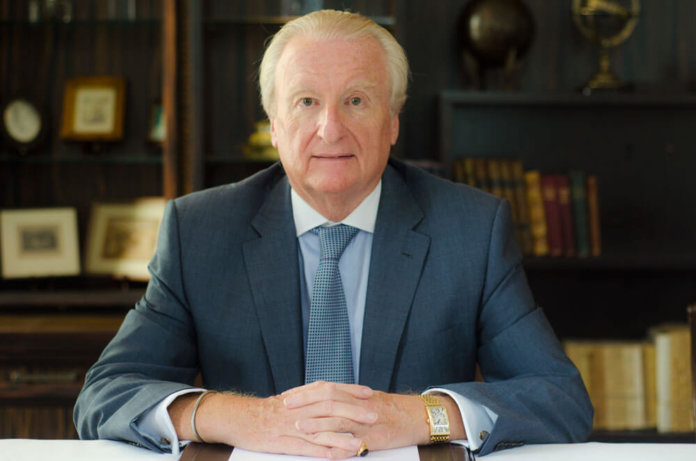
Interview with Envestors chairman and founder David Moleshead
David Moleshead was a career banker for over 40 years with senior positions in Europe and Asia before coming to the Middle East in 2000 as managing director HSBC Middle East Investment Banking. After retiring in 2007 and engineering billions of dollars of deals in the public debt markets, he founded Envestors MENA in Dubai, a corporate finance advisory firm that advises SMEs and entrepreneurs on raising capital. In this exclusive interview with Tharawat, Envestors Chairman and Founder David Moleshead discusses the winning characteristics and tips of successful entrepreneurs, and what it takes for SMEs to attract investment.
How was Envestors founded and what kind of work does it do?
Envestors is part of an international business angels network with offices in the UK, Channel Islands and Monaco. I was already a business angel in a small number of companies in the UAE and I could see first hand that the fundraising process was very ad hoc with no real structure or process. Because of that, we decided to secure a franchise for the Middle East so we could establish Envestors’ practices here in the region.
At Envestors, we receive about 30 inquiries per month from SMEs and entrepreneurs seeking advice either to start up companies or seeking advice on raising capital to expand businesses. We engage with a very small number of these businesses after initial assessment and then guide them in the processes necessary to attract investment, which may or may not come from potential investors in our network.
How do you assess whether a business has potential to raise capital and what kind of advice do you give to make them attractive for investors?
Opportunities are assessed on three main areas:
– The business concept and its applicability to the market.
– The quality and experience of the management team.
– The financial viability of the opportunity as seen by the business owner and the potential investors.
To make their businesses more investor friendly, we have advised business owners to be more realistic about the value of their businesses and the level of shareholding that they could expect to share to attract investment. We have also made suggestions on legal structures as well as management structures to make investors more confident in investing in the team.
What kind of entrepreneur is able to “sell you” on their business?
Above all else, a good management team is essential. A poor management team might not be able to deliver a good business plan but a good management team will adapt a poor plan to make it successful.
Why do you and Envestors choose to advise entrepreneurs and SMEs instead of larger companies?
Generally speaking, there are very few advisers available for SMEs and entrepreneurs to use – the challenges that a large company faces are similar to a small company except in scale, but a large company will usually have many advisers who are willing to assist either in return for sizable fees or the prospect of future business.
Having worked in the large corporate world all my life, I am happy to share my experience with SMEs because any changes that are suggested and made can usually make a much more significant difference in a short period of time. It is very encouraging to see companies that we have advised go forward and be successful.
What are your thoughts on the state of the startup and entrepreneurial environment in the Middle East?
I think that the market is not well served and it is becoming increasing difficult for micro companies to launch and survive. Too much of the costs are front-loaded which means that entrepreneurs can quickly run out of funds.
A number of other markets create an environment where there is a benefit for private investors to get more involved with SMEs. This is helpful to SMEs because many of these potential private investors are experienced business owners or professionals and they can provide added-value advice as well as investment.
Overall, the greatest challenge for small companies is to get appropriate funding that is not too expensive in the early days. On the other hand, growth rates in many sectors in the Middle East are arguably as high as anywhere else in the world because of the low base.
What can be done to encourage startup and entrepreneurial activity?
There needs to be a much wider pool of private investors who are encouraged to be more active towards SMEs and be actively involved to ensure that they are successful.
Governments can create the environment but they do not necessarily need to provide the funding – they can be active facilitators in a number of ways so that the whole approach towards the plight of the small companies is more helpful.
Having advised numerous entrepreneurs and SMEs, what do you think are the qualities of a successful entrepreneur?
I would see the successful entrepreneur having the following attributes:
– Great determination to succeed.
– Ability to think long term.
– Capacity to build a good team around them to complement skills.
– Having an awareness of external factors that can impact the business either positively or negatively.
– Prepared to take a dispassionate view of their business and listen to advice.
– Being financially aligned with the interests of the shareholders – if the owner succeeds then so will the shareholders – it cannot be a “lifestyle business”.









